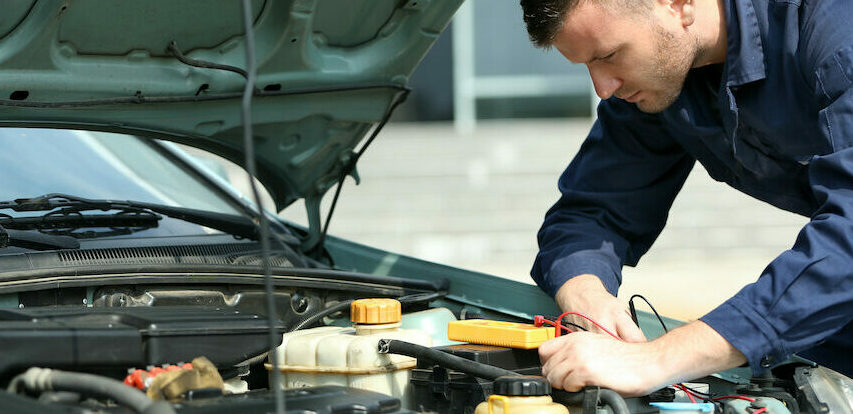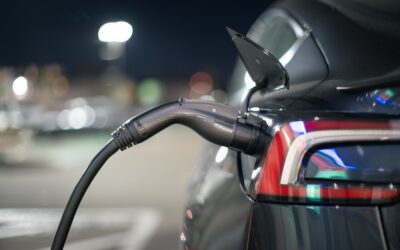Regular car maintenance is essential. It ensures that all of your car’s most vital systems stay in good working order. By carrying out regular maintenance it will hopefully mean you’ll be able to depend on your car at all times, and you won’t be surprised by a sudden breakdown or tyre blowout. Regular car maintenance will also help you spot any potential problems early, which can save you a lot of money on expensive repairs further down the line.
In this post we’ll list our top tips for regular car maintenance – some simple checks that’ll keep you safe in the short term while helping you save money in the long-term.
Just bear in mind that your car might need different checks depending on whether it’s a petrol, a diesel, an electric, or a hybrid. But these are the essentials.
Check Tyres for Wear and Tear
Look for splits and bulges, and use the 20p test to check the tread depth.
What’s the 20p test? The legal minimum tread level is 1.6mm. The outer rim of a 20p piece is a little under 2mm. So if you slot a 20p into your tyre tread and you can see the edge, then it might be time for a replacement.
You should also ensure you have the correct pressure in each tyre according to how you use your car. You’ll find a guide to tyre pressure in your owner’s handbook, and there should also be a table in your car’s door jamb.
We have a detailed guide to tyre maintenance to help you spot the common signs of wear and tear.
Look After your Windscreen
Keep your windscreens clean and free from any caked-on dirt or smears. This includes keeping the windscreen clean inside car and remembering to wash and clean the rear windscreen. Check for chips and cracks, as even the smallest chip can eventually develop into something much more serious.
You should also check your windscreen wiper blades from time to time. They won’t last forever, so look for signs of wear in the rubber.
Monitor Fluid Levels
Keep tabs on your:
- Oil – If your car’s oil levels get too low, your car could break down. If the levels get dangerously low you can cause severe damage to your engine.
- Engine coolant – This prevents overheating, and it can also prevent your engine from freezing. Some cars have sealed systems, in which case you may never have to top up your coolant. But if not, make sure you check your coolant levels regularly – particularly before long journeys.
- Windscreen washer – You don’t want this to run out in the middle of a journey, so make sure you always have enough to rely on.
- Brake fluid – Your car’s handbook will advise you on the correct brake fluid to use, and on how to check your levels. Just remember that brake fluid’s corrosive, so if you’re running low, this might be a job best left to the professionals.
- Fuel – It might sound obvious, but running out of fuel is a surprisingly common cause of breakdowns. So make sure you always have plenty of fuel in your tank, and top up as soon as you can before you start a long journey. Otherwise, you might struggle to find a petrol station when you really need one.
Check Your Car Battery and Lights
Check your car battery regularly. You can do a quick visual check for any signs of leakage or corrosion. And if you have the right equipment, you can check the charge levels yourself too.
But you should also commit to regularly getting your battery checked by a professional. They’ll be able to check your car’s starting and charging system along with the battery, and they’ll also let you know when it’s time for a replacement.
Also regularly check all of your lights. Ask someone to walk around your car and check for you. Don’t forget the registration plate lights! You can get a fine if your registration plate isn’t clearly visible.
Get Regular Car Servicing From a Garage
Your car’s handbook should include a recommended service schedule. In most cases, you should arrange a service after every 10,000 miles of driving. But it’s good practice to book at least one service a year, regardless of how often you drive.
During a service, trained professionals will be able to carry out the more complex maintenance that you might be unable or unwilling to do yourself – such as charging the battery and topping up your brake fluid levels. They may also be able to spot the sort of issues that you might overlook. Would you know when to change a spark plug in a petrol car, for example? Or how to check the particulate filter in a diesel?
Fixing any problems in advance will help you save loads on costly repairs in the long-term.
For even more peace of mind, add breakdown cover to your comprehensive car insurance. That way, if you ever do breakdown, you can at least rest assured that help will be on the way before long.




